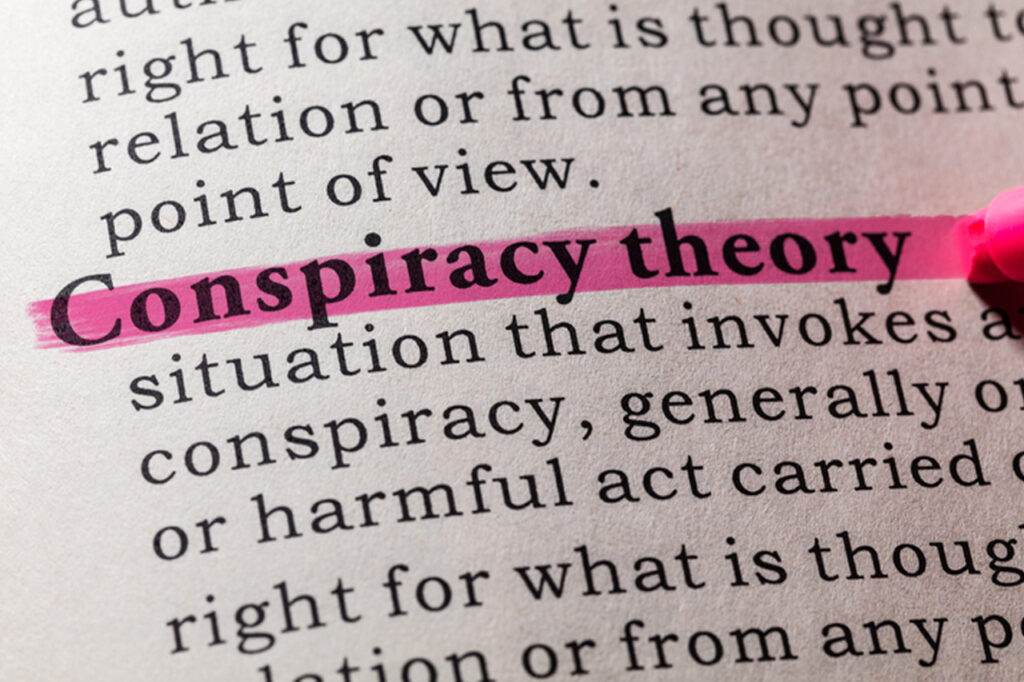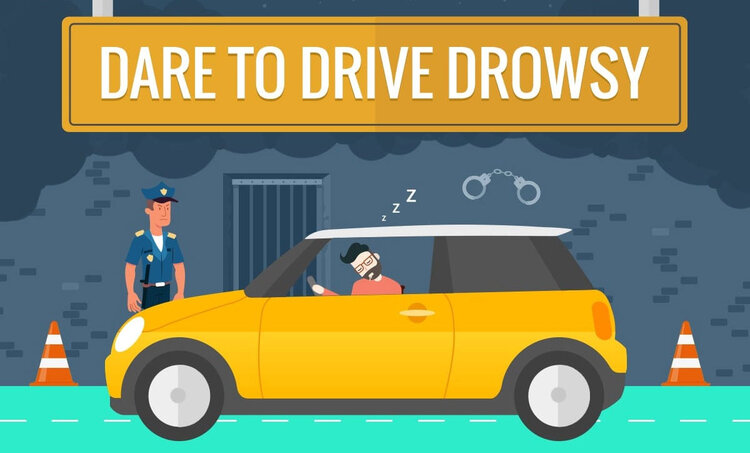How to handle a conspiracy theorist?

Everyone knows a conspiracy theorist and how difficult it can be to reason with one. Some of us may even be conspiracy theorists ourselves. They usually have some extravagant and highly unlikely explanation for an event or a series of events. The truth, however, is usually far less dramatic.
Whether it’s the Grassy Knoll, the moon landings or the Covid-19 vaccine, nearly every major event in history spawns conspiracy theories. Perhaps unsurprisingly, the people that subscribe to conspiracy theories usually believe in all of them rather than just one or two.
As such, conspiracy theorists have developed an arsenal of diversionary tactics to confound and frustrate their opponents in debates.
Let’s examine a few of them and how you can best deal with them:

1. ʺYou’re taking it out of contextʺ
If you want to find a conspiracy theorist, just search online for the word “context.” This is often used by those with some agenda or ideology to intentionally confuse people about a topic they don’t agree with. If nothing else, it gives them something to argue about so that they can keep a conversation going and make themselves feel superior in the process.
The first step here is figuring out what context is being used and then explaining how it has been taken out of context. The deeper point here isn’t necessarily proving whether someone was right or wrong, but instead getting across that there are many different contexts at play when discussing any given subject matter – even if you happen to disagree on this particular issue.
2. ʺWhy is it so important to you?ʺ
A conspiracy theorist will often be so concerned with finding proof of what they’re saying that they can find absolutely no other way to explain why an event or series of events happened as it did. The truth might be unfortunate or unpleasant, which is why so many people choose to believe in these things – even when the evidence isn’t there.
This question gives you the chance to ask directly what their motivations are for believing in all these conspiracy theories: are they just trying to make themselves feel better – superior even? Are we accusing someone of being a narcissist here? What does this mean for our relationship and friendship if I become aware of this fact?
There may well also be some childhood trauma at play here too… but let’s save that conversation for another time. Once again it’s important not to attack anyone personally, but instead focus on discovering more about how others think by asking questions rather than making assumptions or bringing up controversial points yourself (unless you really know what you’re doing).
This question is a sign that the conspiracy theorist is feeling cornered and defensive because they’re losing the argument, and they need to attack their opponent themselves rather than the subject at hand. This tactic is called ‘ad hominem’, meaning ‘to the man’.
3. ʺIt’s not a conspiracy theory if it’s true!ʺ
If you can get the conspiracy theorist to admit that it is true in this situation, then they will have no choice but to back down and change their position – even if they don’t want to accept your argument yet. This doesn’t mean agreeing with them on everything, only proving one point at a time so as not to overwhelm or confuse them.
Often just getting someone who thinks like this that “everything is connected and controlled by some shadowy body of people pulling strings from afar behind the scenes for nefarious purposes” is enough for them finally ease up on all these theories and begin looking into more balanced sources of information about current affairs again instead of having such an extreme viewpoint.
4. ʺYou’re probably just confused by the logical fallacies you use to support your claimsʺ
Logical fallacies happen all the time as people try to make their point and convince others that they are correct. These can be arguments in themselves where someone is forced to defend why something like a conspiracy theory makes sense – even when it doesn’t.
This is usually because of some logical fallacy that has been used somewhere along the line, such as arguing from authority (someone who should know what they’re talking about said this), appeal to emotion (something bad happened here which proves your argument) or even using a straw man argument which only exists so that you can easily knock it down and “prove” how right you are.
These things may not seem too important at first but if we think back to the second dialogue above where we ask “why does this matter?” then surely there must be an answer for us here? We already know there are many different theories on any given subject, so do these logical fallacies help us find out more about each one or just give rise to more questions without providing any answers? It might sound crazy, but by asking these questions directly we have another way of trying to understand our friends better; perhaps leading them away from wanting to believe in unfounded claims anyway.
5. ʺIf this was true, I wouldn’t be hearing about it now would I?ʺ
This one’s a classic and can be used in just about any situation where someone has engaged with some conspiracy theory or another (even if they don’t necessarily want to admit it). Because of this we should all have the ability to use the “someone would have leaked it by now” argument in our back pocket for those occasions when someone starts talking like this.
Conclusion
As you can see, many of the argumentative tactics used by conspiracy theorists are diversionary and do nothing but confirm our suspicions of insecurity within the theorist themselves.
It’s not clear whether it’s nature or nurture that makes someone a conspiracy theorist, but either way, it’s nigh-on impossible to change their mind with a few lines of debate. You may sow the seeds of doubt but a few minutes of dialogue won’t undo a lifetime of indoctrination.





